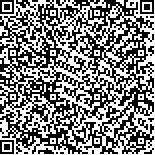| 顾娉郡,汤幸妮,郑佳禧,等.表皮生长因子受体敏感突变的晚期非小细胞肺癌在一代表皮生长因子受体酪氨酸激酶抑制剂治疗中早期对比晚期原发灶体部立体定向放射治疗的疗效差异[J].肿瘤学杂志,2024,30(12):999-1005. |
| 表皮生长因子受体敏感突变的晚期非小细胞肺癌在一代表皮生长因子受体酪氨酸激酶抑制剂治疗中早期对比晚期原发灶体部立体定向放射治疗的疗效差异 |
| Timing of Stereotactic Body Radiotherapy in Advanced Non-Small Cell Lung Cancer with Epithelial Growth Factor Receptor Sensitive Mutations Following Epithelial Growth Factor Receptor-Tyrosine Kinase Inhibitor Therapy |
| 投稿时间:2024-07-06 |
| DOI:10.11735/j.issn.1671-170X.2024.12.B004 |
|
 |
| 中文关键词: 表皮生长因子受体 体部立体定向放疗 非小细胞肺癌 无进展生存期 总生存期 T790M突变 |
| 英文关键词:epithelial growth factor receptor mutation stereotactic body radiotherapy non-small cell lung cancer progression-free survival overall survival T790M mutation |
| 基金项目:浙江省公益基础项目(LGF21H160027);浙江省医药卫生科技计划项目(2024KY1829) |
|
| 摘要点击次数: 419 |
| 全文下载次数: 158 |
| 中文摘要: |
| 摘 要:[目的] 探讨表皮生长因子受体(epidermal growth factor receptor,EGFR)敏感突变的晚期非小细胞肺癌(non-small cell lung cancer,NSCLC)在一代表皮生长因子受体酪氨酸激酶抑制剂(EGFR-tyrosine kinase inhibitor,EGFR-TKI)治疗基础上,原发灶局部体部立体定向放射治疗(stereotactic body radiotherapy,SBRT)干预的时机。[方法] 回顾性评估2016年9月至2022年11月在温州医科大学附属台州医院前瞻性单臂Ⅱ期临床试验(ChiCTR-OIN-17013920),一代EGFR-TKI治疗EGFR敏感突变晚期NSCLC行早期原发灶SBRT患者(早SBRT组);并根据此临床试验标准匹配一代EGFR-TKI治疗后因原发灶进展而接受SBRT患者(晚SBRT组)。比较早SBRT组(开始TKI治疗1个月)与晚SBRT组(原发灶进展时)的无进展生存期(progression free survival,PFS)、总生存期(overall survival,OS)、不良事件(adverse event,AE)及耐药后T790M突变率。[结果] 共纳入68例NSCLC患者,其中早SBRT组41例,晚SBRT组27例。两组患者在年龄、性别、吸烟史、ECOG评分、EGFR突变类型、TNM分期、转移数目及转移部位方面差异均无统计学意义(P均>0.05)。早SBRT组中位PFS对比晚SBRT组中位PFS1(口服一代靶向药至进展)为15.23个月对比10.20个月(P=0.13);早SBRT组中位PFS对比晚SBRT组中位总PFS[口服一代靶向药至进展(PFS1)+进展后SBRT至再次进展(PFS2)]为15.23个月对比18.20个月(P=0.54);两组中位OS分别为27.90个月和36.61个月(P=0.54)。两组均未见3级及以上的AE,2级及以下AE发生率差异无统计学意义。早SBRT组耐药进展后T790M突变率为58.5%(24/41),晚SBRT组为33.3%(9/27)(P=0.05)。[结论] EGFR敏感突变的NSCLC患者接受第一代EGFR-TKI治疗后,早SBRT组与晚SBRT组的生存率和AE均无显著性差异。耐药后早SBRT组较晚SBRT组T790M突变率更高,有待进一步研究。 |
| 英文摘要: |
| Abstract:[Objective] To explore the timing of localized stereotactic body radiotherapy (SBRT) intervention following first generation epithelial growth factor receptor-tyrosine kinase inhibitor (EGFR-TKI) therapy in advanced non-small cell lung cancer(NSCLC) with EGFR-sensitive mutations. [Methods] A prospective single arm phase Ⅱ clinical trial(ChiCTR-OIN-17013920) conducted at Taizhou Hospital Affiliated to Wenzhou Medical University from September 2016 to November 2022 was evaluated. In the trial, 47 NSCLC patients with EGFR-sensitive mutations received first generation EGFR-TKI, and underwent primary lesion SBRT one month after TKI therepy starting (early SBRT group); and 27 matched patients received EGFR-TKI, and underwent SBRT after primary tumor progression (late SBRT group). The progression-free survival (PFS), overall survival (OS), adverse event (AE), and T790M mutation rate after drug resistance were compared between two groups. [Results] There were no significant differences in age, sex, smoking history, ECOG score, EGFR mutation type, TNM staging, number and site of metastasis between two groups (all P>0.05). There was no significant difference in median PFS (15.23 months vs 10.20 months, P=0.13), the total median PFS (15.23 months vs 18.20 months, P=0.54), and the median OS (27.90 months vs 36.61 months, P=0.54) between the early SBRT group and the late SBRT group. There was no grade 3 or above AE observed in either group, and there was no significant difference in the incidence of grade 2 or below AE. The incidence of T790M mutation after drug resistance progression was 58.5% (24/41) in the early SBRT group and 33.3% (9/27) in the late SBRT group (P=0.05). [Conclusion] There is no significant difference in survival and AE of EGFR-sensitive mutant NSCLC patients receiving early SBRT or late SBRT following first-generation EGFR-TKI therapy. After drug resistance, the T790M mutation rate in patients with early SBRT is higher than that with late SBRT, which need to be further studied. |
|
在线阅读
查看全文 查看/发表评论 下载PDF阅读器 |